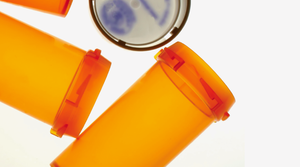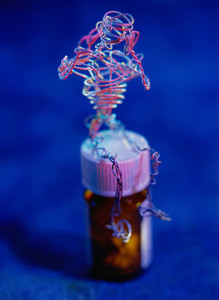The developing countries India and China represent growing markets for active pharmaceutical ingredients (APIs) from western regulated markets. This is the conclusion of Ms Kate Kuhrt, Director of Generics and API Intelligence at Thomson Reuters. “With the pharmaceutical markets in India and China expected to continue to grow at double-digit rates, while traditional pharmaceutical markets, such as the US, Japan and Western Europe remain stagnant, it is no surprise that many API manufacturers have set their eyes on India and China”, she states.
Growing western generic APIs markets in India and China
Generics/General
|
Posted 29/07/2009
 0
Post your comment
0
Post your comment
Ms Kuhrt warns that companies looking to sell their APIs into India and China must be prepared to compete against local manufacturers, cheaper imports from other emerging markets, and regulated market players that have set up a manufacturing presence in the two countries. They must also get the necessary regulatory approval. In both countries, antibiotics are associated with the most registrations. The top 10 lists also include steroids (such as beclometasone and hydrocortisone), lactulose, pancreatin, and ubidecarenone (coenzyme Q10).
According to Ms Kuhrt, a number of regulated API manufacturers are already selling their products into India and China. “An increasing number of Western dose manufacturers such as Watson, Sandoz and Mylan have set up manufacturing facilities in India, while companies such as Sandoz, Stada and Teva have finished dose-manufacturing presence in China.”
In India, Teva of Israel is number one on the Top 5 list of companies with most registration certificates from regulated market companies (45), but since it does not have a dose-manufacturing site in India the API sales must be to third parties or toll manufacturers. Number two is the pharmaceutical company Schering-Plough of the US (39), number three API manufacturer BASF of Germany (37), number four is pharmaceutical company sanofi-aventis of France (26), and number five API manufacturer DSM of The Netherlands (26).
In China, number one on the Top 5 list is API manufacturer Kyowa Hakko of Japan (35), number two, API manufacturer Ajinomoto of Japan (21), number three, API manufacturer DSM of The Netherlands (17), number four, pharmaceutical company Novartis of Switzerland (17), and number five, pharmaceutical company Daiichi Sankyo of Japan (16).
Ms Kuhrt concludes that the growth of the domestic pharmaceutical markets in India and China, increasing attention to the regulatory environment, and continued outsourcing of dose manufacturing to lower cost countries should all contribute to the growth in the number of opportunities for regulated market API manufacturers to sell their products into these two countries.
Source: Scrip
Research
Japan’s drug shortage crisis: challenges and policy solutions
Saudi FDA drug approvals and GMP inspections: trend analysis
EMA launches European shortages monitoring platform to tackle persistent medicine shortages

Generics/General Posted 03/12/2024
FDA releases one-year progress report for the Generic Drug Cluster

Generics/General Posted 28/10/2022
The best selling biotechnology drugs of 2008: the next biosimilars targets








Post your comment